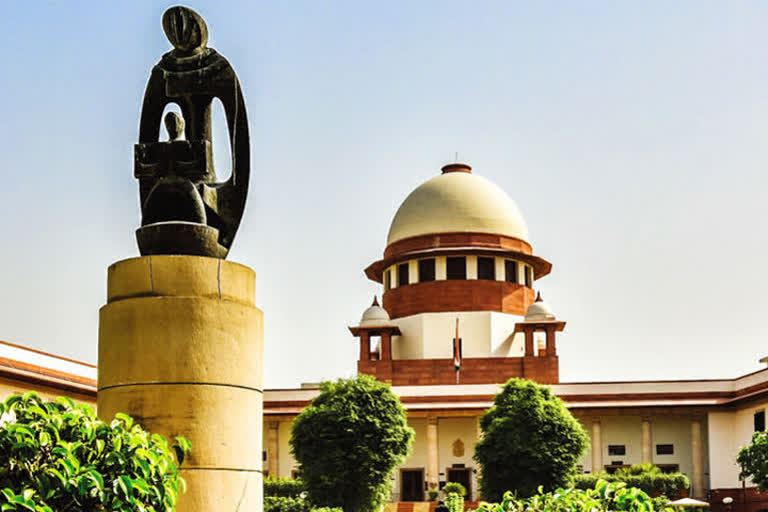New Delhi: The Supreme Court on Friday junked a plea filed by Kerala activist Rehana Fathima to challenge a High Court order that rejected her petition against a case registered under the Protection of Children from Sexual Offences (POCSO) Act and IT Act over her controversial video.
A bench headed by Justice Arun Mishra noted that it was an act to spread obscenity. "What impression will growing-up children get?" the court asked.
Also read: After offenders, system rapes victim: DCW chief Swati Maliwal
The petitioner, the mother to a 14-year-old boy and an 8-year-old girl, had uploaded a video clip titled 'Body Art and Politics' on YouTube, showing her two children painting on her semi-naked body.
Rehana's counsel contended before the apex court that children seen in a video clip are "fully clothed" and his client has been charged with child pornography and not obscenity. "Does female nudity (even when not visible) per se constitutes obscenity?" he pleaded on behalf of his client.
Justice Mishra said that the court was not interested in such a case. The bench, also comprising Justice BR Gavai and Justice Krishna Murari asked the council, "How can you make use of children for this?"
Rehana's counsel contended that her stand has always been that if a man is semi-naked, there is nothing sexual about it. But if a woman does so, it is considered obscene, the counsel pointed out.
The lawyer insisted that his client Rehana is of the opinion that the only way out of this mindset is to sensitise people. She has moved an anticipatory bail plea in a matter.
The counsel argued that he is not focusing on morals involved, but on kind of statutory provisions invoked against her. "The children in the video are fully clothed. How can it fall under the purview of Section 13 of Protection of Children from Sexual Offences Act?"
Justice Mishra said that the Kerala High Court had already looked into the merits of the case and dismissed her plea.
Rehana's plea mentioned that even "goddesses in Kerala are frequently depicted in idols and murals with bare breasts. When one prays at the temple the feeling is not of sexual arousal but one of divinity".
"It may be noted that the video is still available on YouTube and has not been taken down because it shows no nudity," she pleaded.
She said that the prosecution had, however, accused her of offences punishable under Sections 13, 14, and 15 of the POCSO Act, Section 67B of the Information Technology Act, and Section 17 of the Juvenile Justice Act.
(IANS report)



